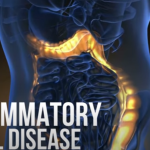Coeliac Disease
Coeliac disease is a common disease affecting more than 1% of the Australian population.
What is Coeliac Disease?
Coeliac disease is a common disease affecting more than 1% of the Australian population.
What is the cause of Coeliac Disease?
The cause is an allergy to a protein called gluten which is found in foods containing wheat, barley and rye.
What are the symptoms of Coeliac Disease?
Patients with coeliac disease develop inflammation in the small intestine, which can results in a number of symptoms including:
- Nausea
- Abdominal pain
- Constipation
- Diarrhoea
- Poor appetite
- Lethargy
The damage to the lining of the gastro-intestinal tract can result in decreased absorption of vital nutrients and may result in anaemia and osteoporosis, as well as infrequent serious complications such as small bowel cancer.
Many patients with coeliac disease have very few symptoms.
Coeliac disease is an immune disease, which runs in families and can be associated with other immune diseases.
What is the treatment of Coeliac Disease?
The treatment of coeliac disease is dietary.
The introduction of a gluten-free diet is the mainstay of management and results in complete healing of the damaged small intestine.
To make a diagnosis, blood tests are helpful. If a patient has symptoms and a positive blood test for coeliac disease, they will then have an endoscopy where a sample can be taken to confirm the diagnosis.
Endoscopy is the gold standard and is the only way to truly diagnose this condition. It is very important to continue eating wheat, rye and barley whilst testing is underway.
Long term monitoring with a gastroenterologist is advised once a diagnosis is made.
On the whole, the outcomes for coeliac disease are excellent if a life-long gluten-free diet is maintained.





